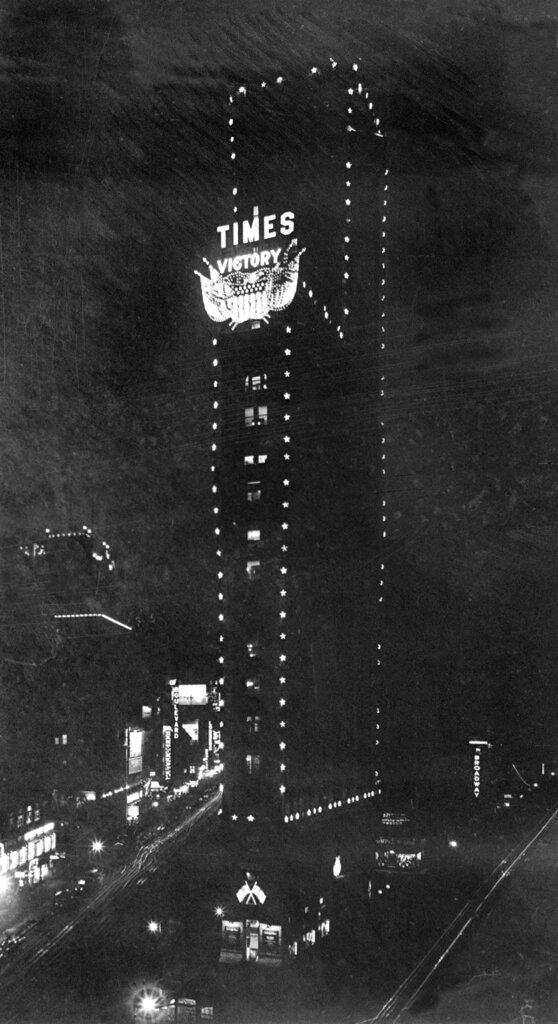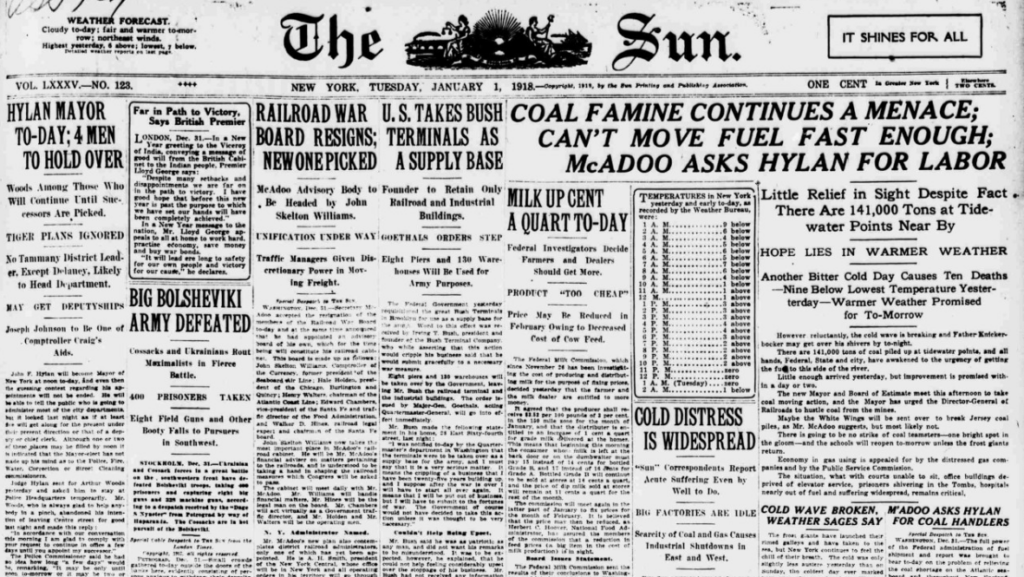106 Years Ago, Another New Year Met With Dread Gives Hope for 2024
Americans can greet 2024 with the same optimism that showed up late to welcome 1918.

Americans are greeting the New Year full of what Hunter S. Thompson called “fear and loathing,” dreading war, recession, and a presidential election. The temptation will be to call 2024 the worst year ever, but a look back at the Sun on this day in 1918 offers a brighter outlook.
On December 31, 1917, the Sun sent a reporter out in search of the celebrations for which Gotham was already famous. The Times Square ball drop was 19 years old. Prohibition, which Congress had just sent to the states for ratification, wouldn’t empty champagne flutes until January 1920.
At first, the Sun’s reporter found the streets joyless, as expected with World War I raging. The first American casualties, three Red Cross reserve nurses, had been killed during a firing exercise in May aboard the U.S.S. Mongolia, which brought them home to a somber New York City.
“War and weather compel noisy celebrators to shun frigid streets,” the Sun imagined on that January 1, 1918. General William T. Sherman, had he been standing “on a Broadway corner” that New Year’s Eve,“would have included the weather, unheated as it was,” in his observation that “war is hell.”

The NYPD turned out to wrangle the throngs as they did yesterday, but “nobody thronged.” When the diminutive manager of the Empire Theater “stepped out to … buy a paper,” five policemen, called “bluecoats,” “wishful for something to do, jumped to keep him in line.”
The Sun reporter pressed on in search of revelry, discovering only “glimmers” of happiness and some “bright flashes of gayety.” Neither “horn tooted” nor “rattle crackled,” he said as the evening arrived, a scene played out across the frozen fruited plain.
Broadway, Harlem, and Longacre Square — as the Sun still referred to Times Square, renamed for its rival newspaper in 1904 — were ghost towns. Our reporter “wandered” into restaurants and dining halls, to find only “empty tables.”
“The only crowd Park Row could boast was a line of husky men who,” the Sun’s reporter imagined, might ease the labor shortage preventing coal shipments into the freezing town. They were just “standing in line to receive free coffee and sandwiches” from a charity.
Where was the optimism that had defined America from its founding? As the hands of pocket watches swung to 12 and the glittering ball reached its zenith, the answer arrived.
“The chimes in the big churches did ring in the new year at midnight,” the Sun reported, pealing “far downtown, miles north in the heart of the Broadway and 5th Avenue sections, and on Harlem’s farthest north and beyond.”
Back in Midtown, the Hotel Astor had sprung to life. Management at the Waldorf told the Sun that “there had been a sudden urge” to ring in 1918 with their “four great orchestras,” which obliged with cymbals, drums, and noisemakers.

At institutions like Sherry’s, Delmonico’s, Churchill’s, and Murray’s, the Sun found “many parties,” and “in the noisier restaurants down Greenwich Village way, doubtlessly more so.” War and winter had muted the celebrations, but the New Year came just the same.
Even when Prohibition arrived, it wouldn’t tame the City that Never Sleeps. Its 97th mayor, James “Jimmy” Walker — sworn into office 98 years ago Monday — remarked that “the army and navy of the United States are not large enough to enforce this unenforceable mockery” on Gotham.
As 2024 dawns, Americans are again beset by negativity. In a Morning Consult Poll last month, only three in 10 said the country was on the right track. Other surveys find majorities unenthusiastic about the looming rematch between Presidents Biden and Trump.
Yet citizens can greet 2024 with the same optimism that showed up late to welcome 1918. This new year will try our souls as that one did theirs. But joy can be found if we shake off the chill, confident that the moment will come when the bells ring out in celebration from Broadway to the Battery — and from there, all across the fruited plain.

